Zen Home: Creating a Relaxing and Peaceful Space

There's nothing quite like coming home to a peaceful, relaxing environment after a long day. If you're overwhelmed by everyday life's chaos, it might be time to create a Zen home. In this blog, we'll explore tips and tricks to help you create a calm, peaceful space that promotes relaxation and tranquillity.
What is a Zen Home?
A Zen home is a space inspired by Zen Buddhism's principles, a philosophy emphasising the importance of mindfulness, simplicity, and living in the present moment.
In a Zen home, the focus is on creating a peaceful, harmonious environment that promotes relaxation and inner peace.
This is achieved through careful consideration of colours, materials, and layout and by incorporating elements that encourage mindfulness, such as meditation spaces and plants. A Zen home is a sanctuary from the chaos of the outside world, where you can feel calm and grounded and cultivate a sense of inner peace.

Tips and Tricks to Create a Zen Home
Now that we understand the principles of a Zen home, it's time to put them into practice. Here are some tips to get you started:
Declutter and Simplify
The first step in creating a Zen home is to declutter and simplify your space. Too much clutter can be overwhelming and stressful, so keeping your space tidy and organised is important. Start by removing any items you no longer need or use. Then, find a place for everything and keep things as simple as possible. Remember, less is more when it comes to Zen living.
Choose Natural Colours and Materials
The colours and materials you choose for your home can greatly impact your mood and overall sense of calm. Zen homes typically use natural, earthy colours, such as beige, white, grey, and green. These colours are calming and soothing and can help create a peaceful atmosphere. When it comes to materials, choose natural materials, such as wood, bamboo, and stone. These materials are durable, sustainable, and have a calming effect.
Create a Meditation Space
Meditation is a key part of Zen living, and having a dedicated meditation space in your home can help you cultivate a regular practice. Choose a quiet, peaceful area of your home and decorate it with items that inspire you, such as candles, incense, and plants. Consider adding a comfortable cushion or meditation bench to help you sit comfortably during your practice.

Let in Natural Light
Natural light is essential for creating a Zen home. Not only does it help boost your mood and energy levels, but it also helps to create a sense of openness and spaciousness. Make the most of natural light by choosing light, airy curtains or blinds that allow plenty of light to filter through.
If you have a garden or outdoor space, consider creating a connection between the inside and outside by adding large windows or doors that let in plenty of natural light.
Incorporate Plants
Plants are a great way to add life and energy to your Zen home. They help to purify the air, reduce stress, and add a natural element to your decor. Choose low-maintenance plants, such as succulents or snake plants, that require minimal care and can thrive in various environments. You could also consider creating a small indoor garden or adding a living wall to your space.

Practice Mindful Living
Finally, to truly embrace Zen living, it's important to practice mindfulness in your daily life. This means being fully present and aware in each moment and trying to slow down and appreciate life's beauty. Enjoy a cup of tea, walk in nature, or simply sit and breathe. By cultivating mindfulness, you can create a sense of peace and harmony extending to your home.
Final Thoughts
Creating a Zen home is about creating a space that promotes relaxation, mindfulness, and inner peace. Using the methods discussed above, you can create a calming and peaceful environment to help you thrive.
Introducing Zen Home Rugs: The perfect balance of style and tranquility
Zen Home Rugs are not just ordinary floor coverings; they are carefully crafted works of art that embody the essence of Zen living. Designed with a deep appreciation for simplicity and natural beauty, these rugs seamlessly blend form and function, creating an ambiance that soothes the senses and uplifts the spirit.
Inspired by the serene landscapes of Japan and the minimalist aesthetics of Zen philosophy, Zen Home Rugs are a testament to the power of understated elegance. Each rug is meticulously crafted using premium materials and time-honored techniques, ensuring that every piece is a unique and enduring work of art.
Whether you seek to create a peaceful meditation space, a cozy reading nook, or a harmonious living area, Zen Home Rugs offer a versatile and timeless solution that transcends fleeting trends and fads.

Benefits of using Zen Home Rugs
Incorporating Zen Home Rugs into your living spaces offers a multitude of benefits that extend far beyond their visual appeal. Here are just a few reasons why these rugs are a worthy investment:
-
Promote relaxation and mindfulness: The calming colors, organic patterns, and natural textures of Zen Home Rugs create an atmosphere conducive to relaxation and mindfulness. By surrounding yourself with these serene elements, you can cultivate a sense of inner peace and tranquility.
-
Enhance overall well-being: Studies have shown that exposure to natural elements and minimalist design can positively impact our mental and physical health. Zen Home Rugs, with their earthy tones and organic materials, can contribute to reducing stress levels and promoting overall well-being.
-
Timeless and versatile style: Unlike fleeting trends, the understated elegance of Zen Home Rugs is timeless and versatile. These rugs can seamlessly integrate into various interior design styles, from modern to traditional, without compromising their aesthetic appeal.
-
Durability and longevity: Crafted from premium materials and employing time-honored techniques, Zen Home Rugs are built to withstand the test of time. With proper care, these rugs can become cherished heirlooms, passed down from generation to generation.
-
Eco-friendly and sustainable: Many Zen Home Rugs are crafted from natural, renewable materials such as wool, jute, and bamboo, making them an environmentally conscious choice that aligns with the principles of sustainability.
Design options and styles of Zen Home Rugs
Zen Home Rugs offer a diverse range of design options and styles, catering to various aesthetic preferences and spatial requirements. From the minimalist elegance of traditional Japanese-inspired patterns to the bold yet harmonious geometrics, there is a Zen Home Rug to complement every interior space.
Traditional Japanese-inspired Patterns
These rugs draw inspiration from the rich cultural heritage of Japan, featuring motifs such as cherry blossoms, bamboo, and koi fish. The muted color palettes and organic shapes create a serene and grounding atmosphere, evoking a sense of tranquility and connection with nature.
Geometric Patterns
For those who prefer a more contemporary aesthetic, Zen Home Rugs offer a selection of geometric patterns that embody the principles of balance and harmony. These rugs often feature clean lines, abstract shapes, and a carefully curated color palette, creating a visually striking yet calming presence.
Solid Colors
Sometimes, simplicity is the ultimate form of elegance. Zen Home Rugs also offer a range of solid-colored rugs in earthy tones like sage, terracotta, and charcoal. These rugs provide a neutral canvas that allows other design elements to take center stage while still contributing to the overall serene ambiance.
Textured Rugs
For those seeking a tactile experience, Zen Home Rugs offer a variety of textured options. From the soft, plush pile of wool rugs to the natural, organic feel of jute and sisal, these rugs not only add visual interest but also invite you to connect with the textures and materials through touch.
How to choose the right Zen Home Rug for your space
Selecting the perfect Zen Home Rug for your space is an exercise in mindfulness and intentionality. Here are a few considerations to keep in mind:
-
Room size and layout: Measure the dimensions of your space and consider the traffic flow patterns. Ensure that the rug you choose is appropriately sized and positioned to create a harmonious and functional environment.
-
Color palette and existing decor: Evaluate the existing color scheme and design elements in your space. Choose a Zen Home Rug that complements or enhances the overall aesthetic, creating a cohesive and visually appealing environment.
-
Purpose and function: Consider the primary purpose of the space where you plan to place the rug. For example, a meditation room may call for a more subdued and minimalist design, while a living area may benefit from a bolder, statement-making rug.
-
Personal preferences and lifestyle: Reflect on your personal style preferences and lifestyle needs. If you have children or pets, you may opt for a more durable and easy-to-clean rug material, such as jute or sisal.
Remember, the choice of a Zen Home Rug is a personal one, and the ultimate goal is to create a space that resonates with your inner sense of calm and balance.
Tips for creating a Zen-inspired home using Zen Home Rugs
While Zen Home Rugs are the centerpiece of a serene and harmonious living space, there are additional elements you can incorporate to enhance the overall Zen ambiance:
-
Embrace minimalism: Declutter your space and embrace the principle of "less is more." Remove unnecessary clutter and focus on essential, functional pieces that bring you joy and tranquility.
-
Incorporate natural elements: Bring the outdoors in by incorporating natural elements such as plants, wooden accents, and organic textures. These elements help create a connection with nature and promote a sense of grounding.
-
Utilize neutral color palettes: Opt for a neutral color palette dominated by earthy tones like beige, taupe, and sage. These colors create a calming and serene atmosphere, allowing your Zen Home Rug to take center stage.
-
Incorporate mindful lighting: Explore the use of soft, diffused lighting through the strategic placement of lamps, candles, or natural light sources. Warm, ambient lighting can create a cozy and inviting atmosphere conducive to relaxation.
-
Add personal touches: While embracing minimalism, don't forget to incorporate personal touches that hold meaning and bring you joy. This could be a cherished piece of artwork, a handcrafted vase, or a treasured family heirloom.
By combining these elements with your Zen Home Rug, you can create a truly harmonious and serene living space that nurtures your mind, body, and soul.
Zen Home Ideas: Creating Tranquil Living Spaces
Transform your home into a serene sanctuary with zen-inspired design elements. Incorporate natural materials like wood and stone to bring a sense of the outdoors inside. Opt for a neutral colour palette with earthy tones to promote calmness. Embrace minimalism by decluttering and choosing furniture with clean lines. Introduce indoor plants to purify the air and add a touch of nature. Create a meditation corner with comfortable cushions and soft lighting for daily relaxation.
Zen House Idea: Harmonious Architecture for Modern Living
Design your home with zen principles in mind for a balanced and peaceful living environment. Focus on open floor plans to encourage a sense of spaciousness and flow. Incorporate large windows to allow natural light and connect with the outdoors. Use sliding doors or screens to create flexible living spaces. Consider a water feature like a small indoor fountain to add a soothing element. Emphasise symmetry in your layout and furniture placement for a sense of balance and harmony.
Zen Home Decor Ideas: Minimalist Aesthetics for Inner Peace
Enhance your home's tranquillity with zen-inspired decor. Choose low-profile furniture with simple, clean lines to maintain an uncluttered look. Incorporate natural textures like bamboo, linen, and jute for warmth and visual interest. Use soft, diffused lighting to create a calm atmosphere. Display art with nature themes or abstract pieces that evoke serenity. Introduce aromatherapy with essential oil diffusers to engage multiple senses and promote relaxation.

Zen Home Office Ideas: Productive Spaces with Calming Influence
Create a zen-inspired home office that boosts productivity while maintaining a sense of calm. Opt for a minimalist desk and ergonomic chair to reduce visual clutter. Use natural light where possible, supplemented by task lighting for focus. Incorporate plants to improve air quality and add a touch of nature. Choose storage solutions that keep essentials hidden yet accessible. Consider a standing desk or yoga ball chair to promote movement and well-being throughout the workday.
Zen Home Design Ideas: Balancing Form and Function
Implement zen design principles throughout your home for a cohesive and peaceful environment. Focus on creating negative space to allow rooms to breathe and reduce visual stress. Use sliding panels or shoji screens for flexible room divisions. Incorporate a neutral colour scheme with occasional pops of muted colour for interest. Choose multi-functional furniture to maintain simplicity while meeting practical needs. Consider tatami mats or low-profile seating options for a traditional zen touch.
Zen Home Gym Ideas: Mindful Fitness Spaces
Design a home gym that encourages both physical and mental well-being. Opt for natural or reclaimed wood flooring for warmth and durability. Use large mirrors to create a sense of space and aid in proper form. Incorporate a yoga or meditation area with comfortable mats and cushions. Choose exercise equipment in neutral tones to maintain a calm aesthetic. Add plants to improve air quality and create a connection with nature during workouts.
Zen Home Concept: Holistic Approach to Peaceful Living
Embrace a zen home concept for a holistic approach to tranquil living. Focus on creating a seamless flow between indoor and outdoor spaces. Implement smart home technology discreetly to maintain a clutter-free environment. Use natural air purification methods like salt lamps or activated charcoal. Incorporate a tea ceremony area for mindful moments throughout the day. Consider feng shui principles in furniture placement to optimise energy flow within your home.
Zen Bedroom Ideas on a Budget: Affordable Tranquillity
Create a zen-inspired bedroom without breaking the bank. Choose simple, low-profile bed frames for a minimalist look. Use neutral bedding with different textures for visual interest. Incorporate DIY wall art featuring nature-inspired elements or calming abstract designs. Utilise natural materials like bamboo for window coverings or room dividers. Add ambient lighting with affordable paper lanterns or LED candles for a serene atmosphere.
Zen Home Design Ideas: Harmonious Living Spaces
Implement zen design principles throughout your home for a balanced and peaceful environment. Focus on creating open spaces with minimal furniture to reduce visual clutter. Use natural materials like stone and wood for flooring and accents. Incorporate water features such as small fountains or aquariums for a soothing ambiance. Choose muted, earthy colours for walls and furnishings to promote calmness. Consider built-in storage solutions to maintain a clutter-free and organised living space.

Modern Zen Home Design: Contemporary Serenity
Blend modern aesthetics with zen principles for a contemporary yet calming home. Opt for sleek, minimalist furniture with clean lines and neutral colours. Incorporate large windows and skylights to maximise natural light. Use smart home technology for seamless control of lighting, temperature, and sound. Choose contemporary art pieces that evoke tranquillity and balance. Consider a minimalist fireplace as a focal point for warmth and visual interest.
Zen Home Design Living Room: Serene Gathering Spaces
Create a zen-inspired living room that promotes relaxation and connection. Choose a low-profile sofa and seating options in neutral tones. Incorporate natural elements like a wooden coffee table or stone accents. Use soft, layered lighting with dimmers for a calming atmosphere. Add floor cushions or a low table for traditional Japanese-style seating options. Consider a minimalist entertainment centre to reduce visual clutter while enjoying media.
Zen Home Design Bedroom: Restful Retreats
Design a zen bedroom that encourages restful sleep and peaceful mornings. Opt for a low platform bed with simple, organic bedding. Use blackout curtains in natural fabrics for light control. Incorporate a small water feature or nature sounds machine for soothing background noise. Choose built-in or floating nightstands to maintain a clutter-free look. Consider a meditation corner with a cushion and small altar for mindful moments.
Zen Home Design Exterior: Harmonious Outdoor Spaces
Extend zen principles to your home's exterior for a cohesive and calming environment. Create a minimalist landscape with carefully placed rocks, gravel, and select plants. Incorporate a water feature like a small pond or fountain for a soothing sound element. Use natural materials like wood or stone for pathways and seating areas. Consider a Japanese-inspired gate or entrance for a traditional zen touch. Add outdoor lighting with lanterns or subtle LED fixtures for evening tranquillity.

Zen Home Carpet: Soft Foundations for Serenity
Choose carpeting that complements your zen-inspired home design. Opt for natural fibres like wool or sisal for texture and durability. Select neutral colours or subtle patterns that evoke natural elements like sand or stone. Consider low-pile carpets for easy maintenance and a sleek look. Use area rugs to define spaces and add warmth to hard flooring. Incorporate textured carpets in meditation areas or bedrooms for added comfort during relaxation.
Zen Living Room Ideas: Tranquil Spaces for Relaxation and Connection
Transform your living room into a zen-inspired retreat for ultimate relaxation. Choose low-profile furniture with clean lines to maintain an uncluttered look. Incorporate natural elements like a bamboo screen or stone accent wall. Use a neutral colour palette with occasional pops of muted colour for interest. Add soft textiles like cushions and throws in natural fabrics for comfort. Consider a minimalist fireplace or indoor water feature as a focal point. Incorporate plants to purify the air and add a touch of nature to your zen living space.
FAQ
What is the meaning of Zen House?
A Zen House embodies simplicity, tranquility, and mindfulness in its design and atmosphere, creating a peaceful living space inspired by Zen principles.
What makes a house Zen?
A Zen house features minimalist design, natural materials, ample natural light, and clutter-free spaces that promote calmness and mindfulness.
How to make a zen room at home?
Create a Zen room by decluttering, using neutral colors, incorporating natural elements, and adding soft lighting and comfortable seating for meditation.
What is Zen lifestyle?
A Zen lifestyle focuses on mindfulness, simplicity, and living in the present moment, emphasizing meditation and conscious decision-making in daily life.
Why is it called Zen?
"Zen" derives from the Japanese pronunciation of the Chinese word "Chan," which comes from the Sanskrit "dhyana," meaning meditation or contemplation.
What is a Zen symbol?
Common Zen symbols include the Enso circle (representing enlightenment), the lotus flower (symbolizing purity), and rock gardens (embodying simplicity and nature).
Is Zen Chinese or Japanese?
Zen originated in China as Chan Buddhism but was later popularized and developed further in Japan, where it became known as Zen.
Does zen mean peace?
While Zen is often associated with peace, it more accurately represents a state of mindfulness, presence, and enlightenment rather than just tranquility.
What is the true meaning of zen?
The true meaning of Zen lies in direct experience and intuitive understanding of one's true nature, beyond intellectual concepts or explanations.
What are the 3 characteristics of Zen?
The three main characteristics of Zen are:
- Direct experience
- Non-reliance on written words
- Sudden enlightenment
What are Zen colors?
Zen colors typically include neutral tones like beige, gray, and white, as well as natural hues inspired by earth, wood, and stone.
What is modern Zen house design?
Modern Zen house design combines minimalist aesthetics with natural elements, featuring clean lines, open spaces, and a seamless indoor-outdoor flow.
How do I start living a Zen life?
Start a Zen life by practicing mindfulness, simplifying your surroundings, meditating regularly, and cultivating present-moment awareness in daily activities.
What is unique about Zen?
Zen is unique in its emphasis on direct experience over intellectual understanding, and its use of paradoxical statements (koans) to transcend logical thinking.
What does a Zen bedroom look like?
A Zen bedroom features a minimalist design, natural materials, soft, muted colors, and clutter-free surfaces to promote relaxation and tranquility.
How to make home Zen?
Make your home Zen by decluttering, incorporating natural elements, using soft lighting, creating dedicated meditation spaces, and maintaining a minimalist aesthetic.
What is Zen elements?
Zen elements include natural materials (wood, stone, bamboo), water features, plants, minimalist furniture, and simple, geometric shapes.
How to Zen yourself?
Zen yourself by practicing mindfulness, meditating regularly, simplifying your life, and cultivating non-attachment to thoughts and material possessions.
What is a symbol of Zen?
A prominent symbol of Zen is the Enso circle, representing enlightenment, strength, elegance, and the universe.
What makes a room feel Zen?
A room feels Zen when it has minimal clutter, natural light, soft textures, plants, and a balanced arrangement of simple, functional elements.
What is Zen style architecture?
Zen style architecture emphasizes simplicity, natural materials, harmony with nature, open spaces, and a balance of form and function.
What does Zen lifestyle mean?
A Zen lifestyle involves living mindfully, embracing simplicity, practicing meditation, and finding balance between inner peace and daily activities.
What are Zen vibes?
Zen vibes encompass feelings of calmness, tranquility, mindfulness, and a sense of being present in the moment.
What are Zen rooms?
Zen rooms are spaces designed for relaxation, meditation, and mindfulness, featuring minimal decor, natural elements, and a peaceful atmosphere.
What is modern Zen house?
A modern Zen house blends contemporary design with traditional Zen principles, featuring clean lines, natural materials, and a focus on simplicity and functionality.
What is living a Zen life?
Living a Zen life means embracing mindfulness, practicing meditation, simplifying one's surroundings, and cultivating inner peace in daily activities.
Is Zen a spirituality?
While rooted in Buddhism, Zen can be considered a spiritual practice focused on direct experience and self-realization rather than dogma or belief systems.
How to design a Zen home?
Design a Zen home by incorporating natural materials, maximizing natural light, creating open spaces, using neutral colors, and minimizing clutter.
What are the three things of Zen?
The three main aspects of Zen are:
- Meditation (Zazen)
- Direct transmission of wisdom
- Enlightenment through personal experience
What is Zen mode in life?
Zen mode in life refers to a state of heightened awareness, calmness, and focus on the present moment, free from distractions and unnecessary thoughts.
What is real Zen?
Real Zen is the direct experience of one's true nature, beyond concepts and intellectual understanding, often achieved through meditation and mindfulness practices.
What is special about Zen?
Zen is special in its emphasis on direct experience, non-attachment, and the paradoxical nature of reality, often expressed through koans and meditation practices.
How do I know my Zen?
Recognize your Zen state through feelings of inner peace, present-moment awareness, non-reactivity, and a sense of connection with your surroundings.
What is Zen style interior design?
Zen style interior design features minimalist aesthetics, natural materials, neutral colors, clean lines, and a focus on creating calm, uncluttered spaces.
What is the symbol of the Zen?
The Enso circle is a prominent Zen symbol, representing enlightenment, strength, and the unity of all things.
What is the philosophy of Zen?
Zen philosophy emphasizes direct experience, non-attachment, living in the present moment, and transcending dualistic thinking.
How to live in Zen?
Live in Zen by practicing mindfulness, simplifying your life, meditating regularly, and cultivating non-attachment to thoughts and material possessions.
What do you do in a Zen room?
In a Zen room, you can meditate, practice yoga, read, or simply relax and enjoy the peaceful atmosphere to cultivate mindfulness and inner calm.
How to make a home look Zen?
Make your home look Zen by decluttering, using neutral colors, incorporating natural elements, adding soft lighting, and creating open, flowing spaces.
What is the meaning of Zen House?
A Zen House is a living space designed to promote peace, mindfulness, and harmony through minimalist design and natural elements.
What does being Zen mean?
Being Zen means maintaining a state of calm awareness, non-attachment, and present-moment focus in daily life.
How to create a Zen environment?
Create a Zen environment by minimizing clutter, using natural materials, incorporating plants and water features, and focusing on simplicity and functionality.
What is Zen lifestyle?
A Zen lifestyle involves practicing mindfulness, embracing simplicity, meditating regularly, and finding balance between inner peace and daily activities.
Is Zen Chinese or Japanese?
Zen originated in China as Chan Buddhism but was later developed and popularized in Japan, where it became known as Zen.
What is a Zen symbol?
Common Zen symbols include the Enso circle, lotus flower, and rock gardens, each representing aspects of Zen philosophy and practice.
Does Zen mean peace?
While often associated with peace, Zen more accurately represents a state of mindfulness, presence, and enlightenment rather than just tranquility.
Is Zen a Buddhist?
Zen is a school of Mahayana Buddhism that emphasizes meditation, personal experience, and intuitive understanding.
What is living Zen?
Living Zen means incorporating mindfulness, simplicity, and present-moment awareness into all aspects of daily life.
What are the 3 characteristics of Zen?
The three main characteristics of Zen are:
- Direct experience
- Non-reliance on written words
- Sudden enlightenment
What are Zen colors?
Zen colors typically include neutral tones like beige, gray, and white, as well as natural hues inspired by earth, wood, and stone.
What is the main principle of Zen?
The main principle of Zen is direct experience and realization of one's true nature, beyond intellectual understanding or conceptual thinking.
How to build a Zen house?
Build a Zen house by incorporating natural materials, maximizing natural light, creating open spaces, using neutral colors, and minimizing clutter.
What is Zen elements?
Zen elements include natural materials (wood, stone, bamboo), water features, plants, minimalist furniture, and simple, geometric shapes.
How to Zen your room?
Zen your room by decluttering, using neutral colors, adding plants, incorporating natural materials, and creating a dedicated meditation space.
What is a zen home?
A Zen home is a living space that embodies simplicity, tranquility, and mindfulness in its design and atmosphere, promoting a sense of peace and harmony.
How do I start a Zen lifestyle?
Start a Zen lifestyle by practicing mindfulness, simplifying your surroundings, meditating regularly, and cultivating present-moment awareness in daily activities.
How to zen yourself?
Zen yourself by practicing mindfulness, meditating regularly, simplifying your life, and cultivating non-attachment to thoughts and material possessions.
What does zen room mean?
A Zen room is a space designed for relaxation, meditation, and mindfulness, featuring minimal decor, natural elements, and a peaceful atmosphere.
What does a Zen bedroom look like?
A Zen bedroom features a minimalist design, natural materials, soft, muted colors, and clutter-free surfaces to promote relaxation and tranquility.
How do you sleep in a Zen way?
Sleep in a Zen way by creating a clutter-free bedroom, using comfortable, natural bedding, practicing mindfulness before bed, and maintaining a consistent sleep schedule.
What is the color of Zen interior?
Zen interiors typically use neutral colors like beige, gray, and white, along with natural earth tones inspired by wood, stone, and plants.
How to set up a zen space?
Set up a Zen space by decluttering, incorporating natural elements, using soft lighting, adding comfortable seating for meditation, and maintaining a minimalist aesthetic.
How to create a zen den?
Create a Zen den by choosing a quiet location, using calming colors, adding natural elements like plants or a small fountain, and including comfortable seating for relaxation and meditation.
How to design a Zen interior?
Design a Zen interior by focusing on simplicity, using natural materials, incorporating plenty of natural light, choosing neutral colors, and minimizing decorative elements.
How to make a zen corner?
Make a Zen corner by selecting a quiet spot, adding a comfortable cushion or chair, incorporating plants or natural elements, and including mindfulness tools like a singing bowl or incense.
How to make a bathroom zen?
Create a Zen bathroom by using natural materials, adding plants, incorporating soft lighting, choosing calming colors, and decluttering countertops and storage areas.
What makes a house Zen?
A Zen house is characterized by simplicity, natural elements, minimalist design, clutter-free spaces, and an overall atmosphere of calm and tranquility.
How do I add Zen to my life?
Add Zen to your life by practicing mindfulness, meditating regularly, simplifying your surroundings, and cultivating present-moment awareness in daily activities.
What is zen decor?
Zen decor features minimalist design, natural materials, neutral colors, and elements that promote tranquility such as plants, water features, and simple artwork.
Why is it called Zen?
"Zen" derives from the Japanese pronunciation of the Chinese word "Chan," which comes from the Sanskrit "dhyana," meaning meditation or contemplation.
What is living a Zen life?
Living a Zen life involves embracing mindfulness, practicing meditation, simplifying one's surroundings, and cultivating inner peace in all aspects of daily life.
What is a Zen lifestyle?
A Zen lifestyle is a mindful approach to living that emphasises simplicity, mindfulness, and inner peace. It involves cultivating awareness in everyday activities, reducing clutter both physically and mentally, and finding balance in all aspects of life. Practitioners of a Zen lifestyle often focus on living in the present moment and letting go of unnecessary stress and attachments.
What are the 5 elements of Zen?
The five elements of Zen are integral to its philosophy and practice. They include simplicity, naturalness, subtlety, imperfection, and stillness. Simplicity encourages minimalism in thought and action. Naturalness promotes authenticity and spontaneity. Subtlety values understatement and nuance. Imperfection embraces the beauty of flaws. Stillness cultivates inner calm and meditation. These elements work together to create a harmonious and balanced approach to life.
What are Zen vibes?
Zen vibes refer to the calm, peaceful, and tranquil atmosphere often associated with Zen philosophy and aesthetics. This ambiance is characterised by a sense of serenity, minimalism, and harmony with nature. Zen vibes can be felt in spaces that are uncluttered, feature natural materials, and promote a sense of quiet contemplation. They often evoke feelings of relaxation, mindfulness, and inner peace in those who experience them.
How can I be Zen at home?
To be Zen at home, start by decluttering your space and keeping only essential items. Create a dedicated area for meditation or quiet reflection. Incorporate natural elements like plants or a small indoor fountain. Practice mindfulness in daily activities, such as mindful eating or cleaning. Establish a regular meditation routine, even if it's just for a few minutes each day. Limit digital distractions and create tech-free zones in your home. Embrace simplicity in your decor and choose calming colours for your living spaces.
What are the characteristics of Zen architecture?
Zen architecture is characterised by simplicity, minimalism, and harmony with nature. Key features include clean lines, uncluttered spaces, and the use of natural materials like wood and stone. Zen-inspired buildings often incorporate elements of nature, such as indoor gardens or water features. Large windows allow natural light to flood the space, creating a connection with the outdoors. The design emphasises functionality and tranquility, with a focus on creating peaceful, meditative environments.
What are the key characteristics of Zen?
The key characteristics of Zen include mindfulness, simplicity, and direct experience. Zen emphasises living in the present moment and cultivating awareness in all activities. It values simplicity in thought and action, encouraging practitioners to let go of unnecessary complexities. Zen also stresses the importance of direct, personal experience over theoretical knowledge. Other characteristics include non-attachment, acceptance, and the pursuit of inner peace. Zen practitioners often seek to transcend dualistic thinking and achieve a state of enlightenment or awakening.
What is Zen mode in real life?
Zen mode in real life refers to a state of focused awareness and calm presence in everyday situations. It involves approaching tasks and interactions with a clear, uncluttered mind, free from distractions and unnecessary stress. In Zen mode, one is fully engaged in the present moment, whether it's during work, conversations, or leisure activities. This state of mind allows for greater efficiency, creativity, and enjoyment of life's experiences. Practicing Zen mode can lead to reduced anxiety, improved concentration, and a greater sense of overall well-being.
What are the 7 aesthetic principles of Zen?
The seven aesthetic principles of Zen, known as Zen aesthetics or wabi-sabi, include:
- Kanso: Simplicity or elimination of clutter
- Fukinsei: Asymmetry or irregularity
- Shibumi: Beauty in the understated
- Shizen: Naturalness without pretense
- Yugen: Subtle grace or hidden beauty
- Datsuzoku: Freedom from habit or formula
- Seijaku: Tranquility or an energised calm
These principles guide the creation of art, architecture, and living spaces in Zen philosophy, emphasising beauty in imperfection and simplicity.
How to live a Zen lifestyle?
To live a Zen lifestyle, focus on simplifying your life and cultivating mindfulness. Start by decluttering your physical space and digital life. Practice meditation regularly, even if it's just for a few minutes each day. Embrace mindfulness in everyday activities, such as eating, walking, or working. Learn to let go of attachments and practice non-judgment. Cultivate gratitude for what you have and find beauty in simplicity. Spend time in nature and incorporate natural elements into your living space. Prioritise experiences over material possessions and practice compassion towards yourself and others.
How can I be Zen at home?
To create a Zen atmosphere at home, start by decluttering and organising your living spaces. Choose a neutral colour palette with natural tones to promote calmness. Incorporate natural materials like wood, stone, and plants into your decor. Create a dedicated meditation or relaxation area. Minimise electronic distractions by designating tech-free zones. Use soft, natural lighting and consider adding a water feature for a soothing ambiance. Practice mindfulness in your daily routines, such as mindful cleaning or cooking. Regularly air out your home and maintain a clean, uncluttered environment to promote a sense of peace and tranquility.
What are the characteristics of Zen architecture?
Zen architecture is characterised by its emphasis on simplicity, naturalness, and tranquility. Key features include minimalist design with clean lines and uncluttered spaces. The use of natural materials like wood, stone, and bamboo is prevalent. Zen-inspired buildings often incorporate large windows to allow ample natural light and create a connection with the outdoors. Indoor-outdoor flow is important, often achieved through the use of sliding doors or engawa (verandas). Water features and rock gardens are common elements, promoting a sense of calm and reflection. The overall design aims to create a harmonious balance between the built environment and nature, fostering a sense of peace and mindfulness for its inhabitants.
Related Blog Posts
Aromatherapy and Rugs: Creating a Relaxing Ambiance for Colder Months
Related Rug Collections





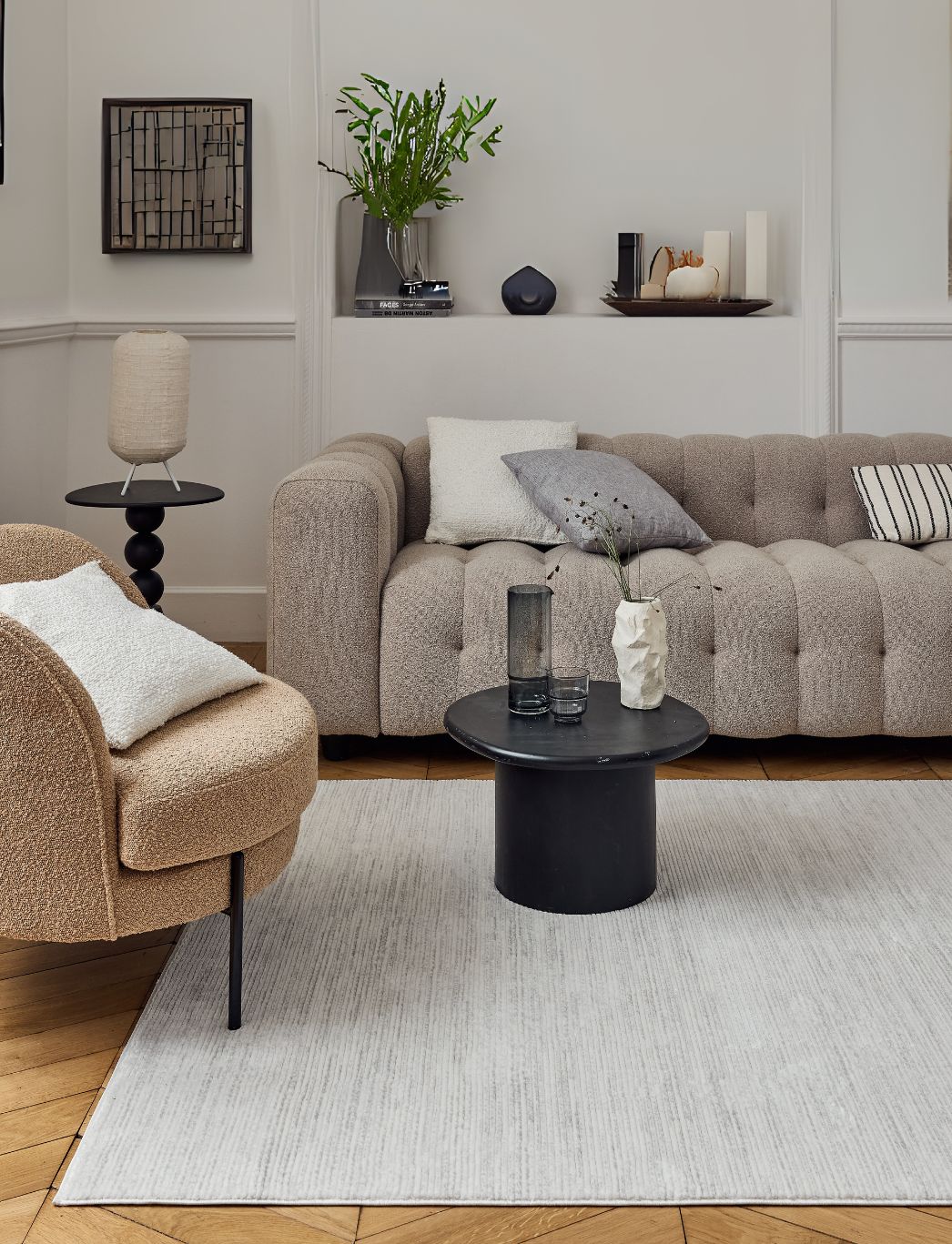
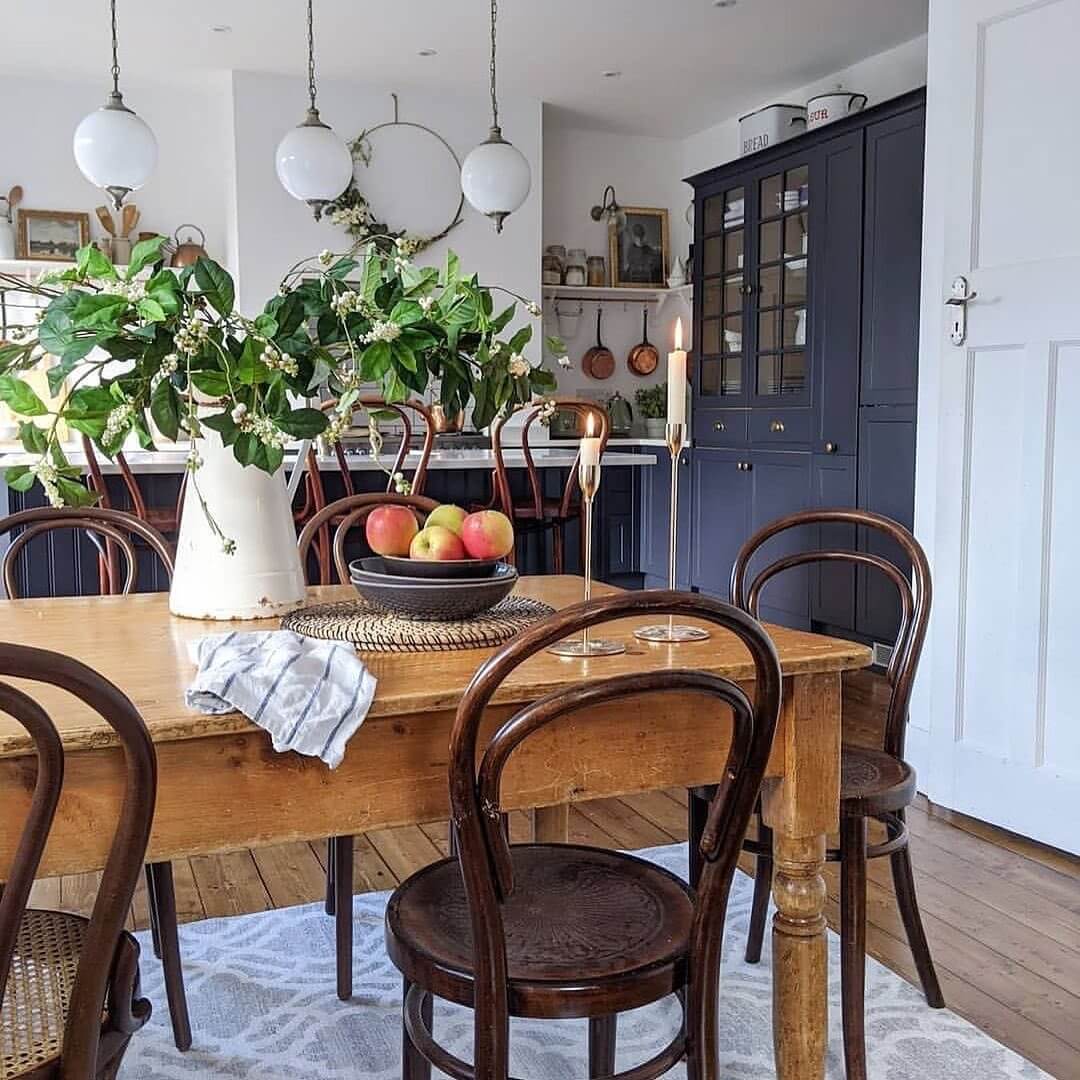
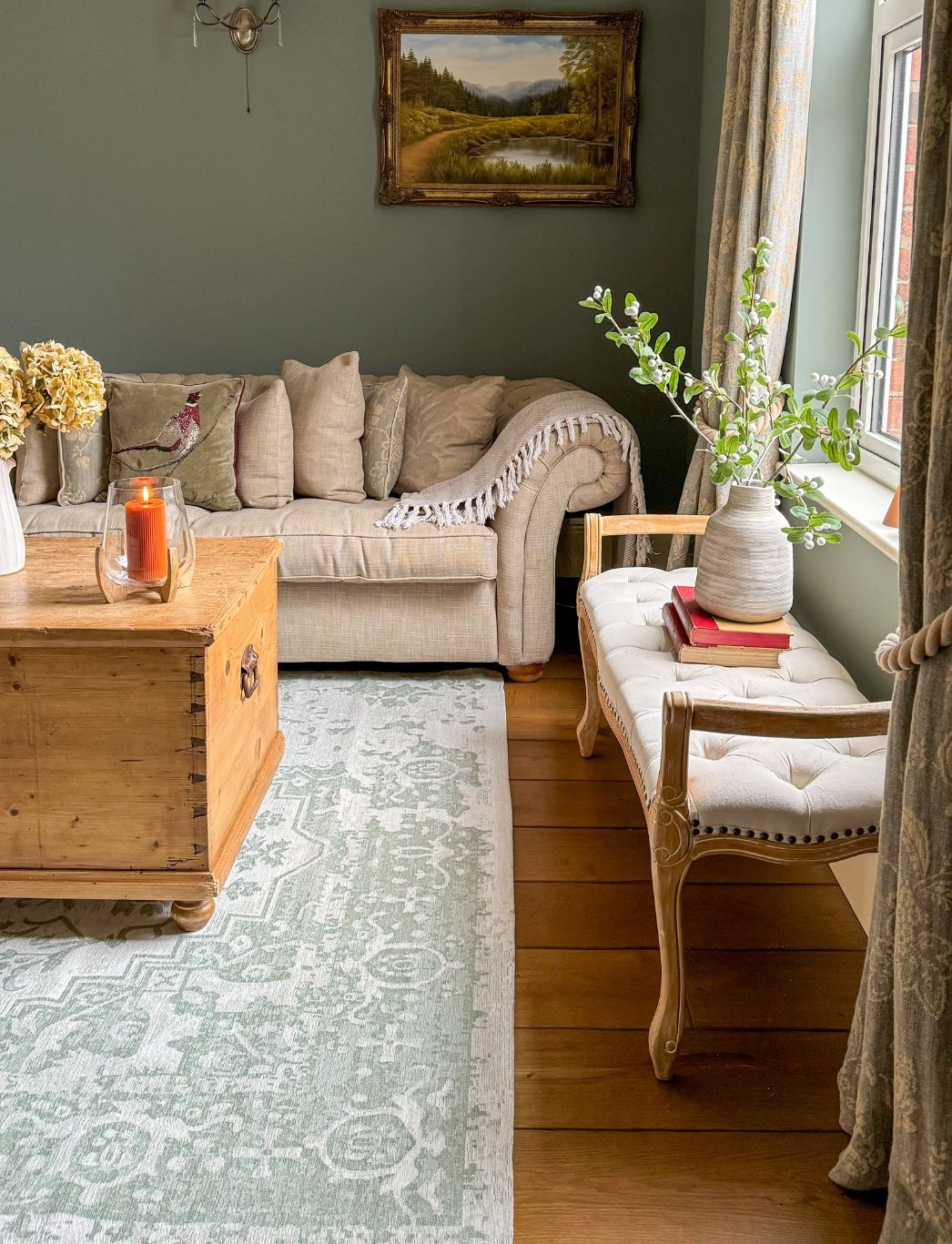
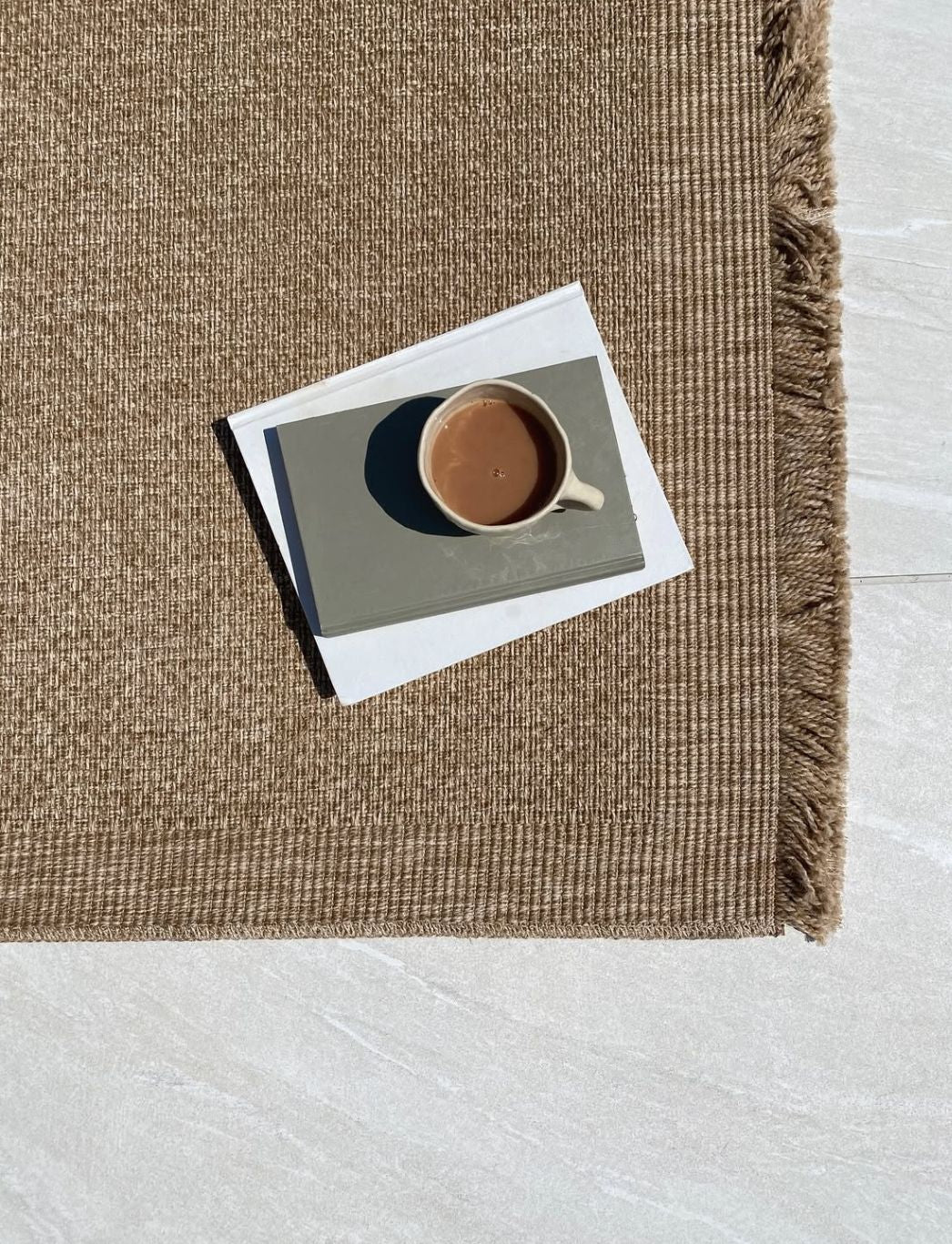
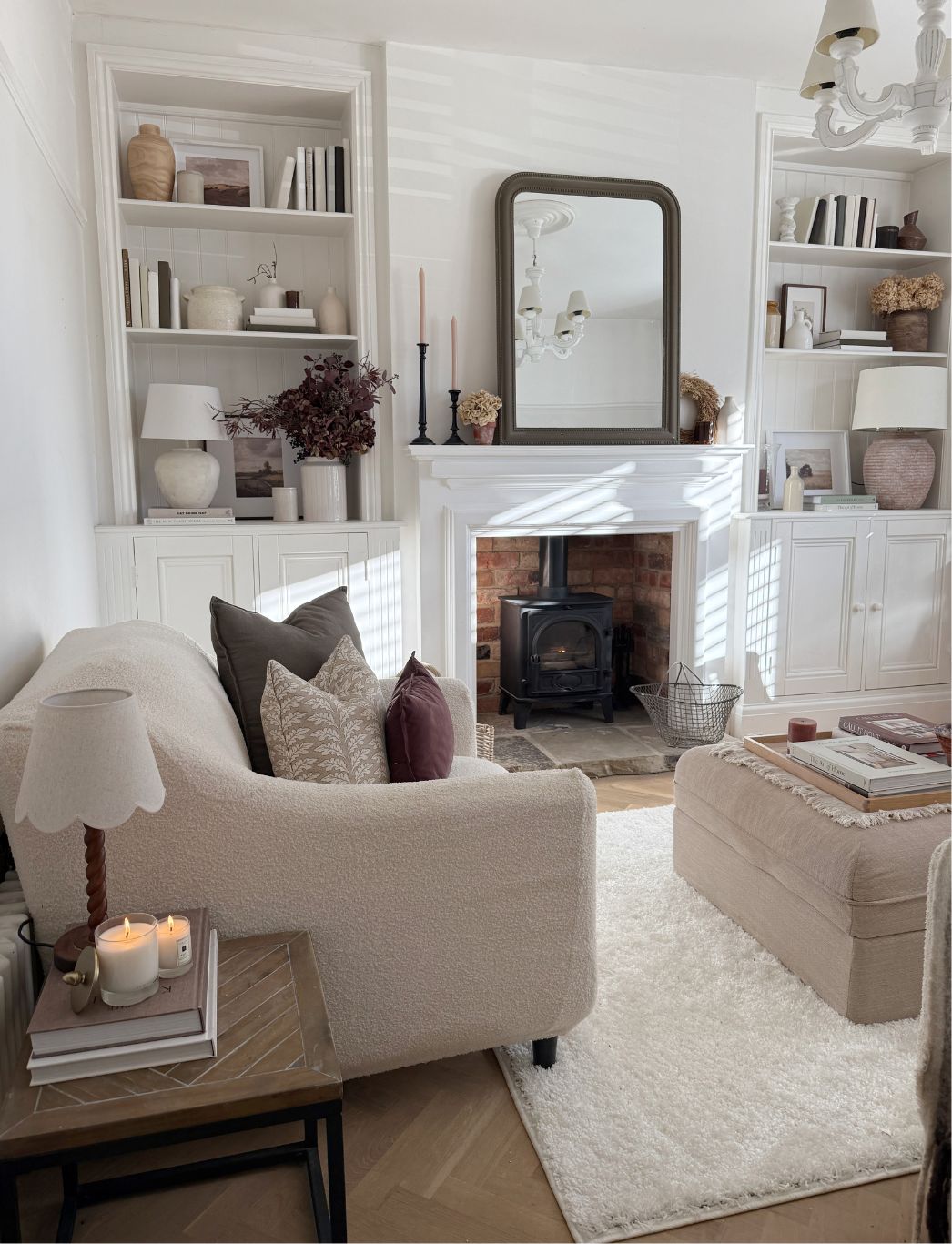
Leave a comment